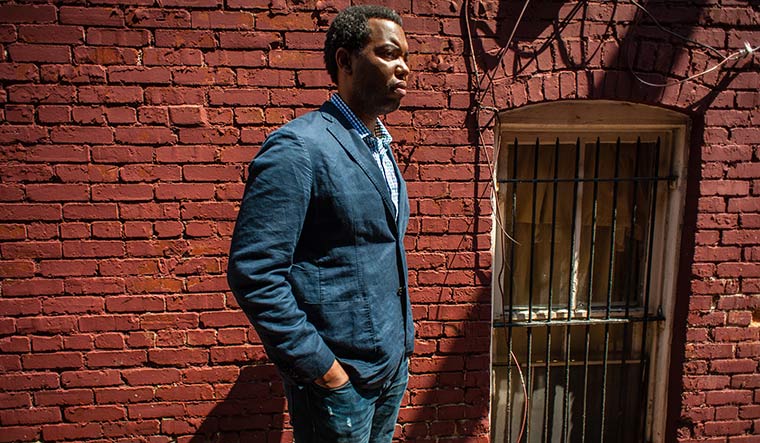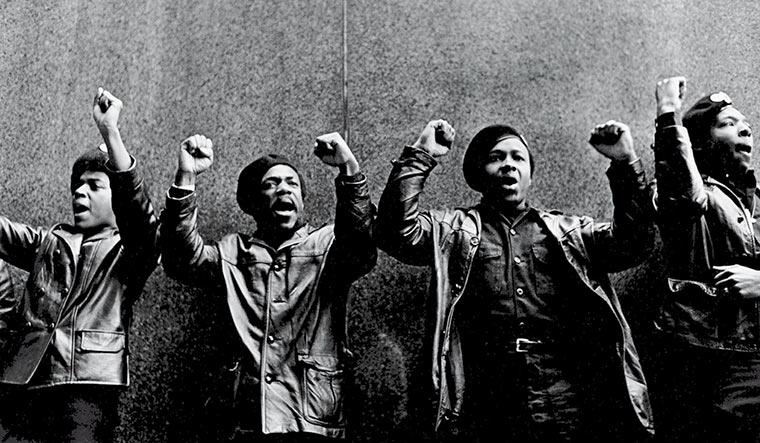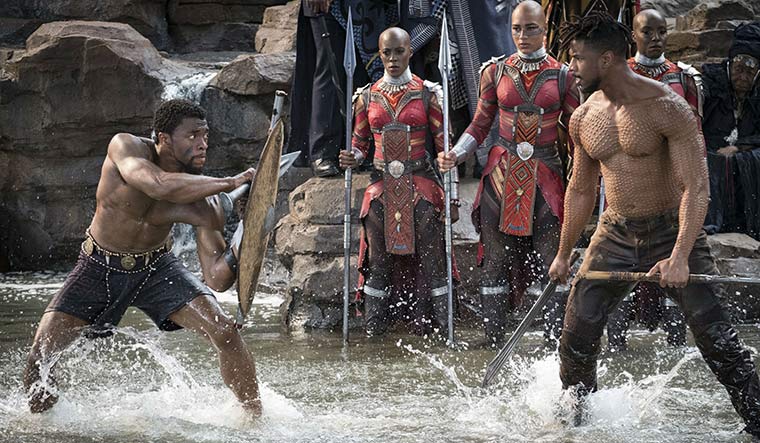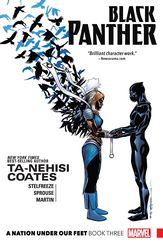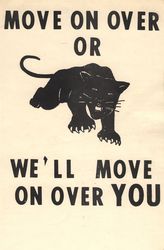In June 2014, The Atlantic ran a cover story headlined ‘A Case for Reparations’, by national correspondent Ta-Nehisi Coates. A monumental essay in length and in scope, it examined America’s debt to black people, for having put them through more than two centuries of slavery, a century of racial segregation laws, and decades of a racist housing policy.
Rather than assessing that debt in monetary terms, Coates’s article was meant to throw light on America’s compounding moral debts, and the need for white Americans to come to terms with their “sins of the past”. One could draw a parallel between ‘A Case for Reparations’ and Shashi Tharoor’s stirring speech on what Britain owed to India, delivered at an Oxford Union debate a year after Coates’s article came out. Both the speech and the essay were blockbusters—the footage of the Indian MP laying into the British drew three million YouTube views within a month, while Coates’s story set records for The Atlantic’s print sales and its website’s single-day traffic.
But, unlike in the case of Tharoor’s impassioned broadsides against the British, Coates’s charge-sheet against white America did not provoke indignant responses. There was, in fact, little scope for an argument against the meticulous ‘Reparations’. Take, for instance, this part where Coates talks about slaves in cotton farms in the American south: “The state with the largest number of enslaved Americans was Virginia, where in certain counties some 70 per cent of all people laboured in chains. Nearly one-fourth of all white Southerners owned slaves, and upon their backs the economic basis of America—and much of the Atlantic world—was erected. In the seven cotton states, one-third of all white income was derived from slavery. By 1840, cotton produced by slave labour constituted 59 per cent of the country’s exports. The web of this slave society extended north to the looms of New England, and across the Atlantic to Great Britain, where it powered a great economic transformation and altered the trajectory of world history. ‘Whoever says Industrial Revolution,’ wrote the historian Eric J. Hobsbawm, ‘says cotton.’”
The corollary to Hobsbawm, Coates suggests, is that the industrial revolution was built on the backs of enchained, cotton-picking black slaves, who were traded like animals and were paid next to nothing. Hence, the need for reparations.
‘Reparations’ received the critical acclaim it so richly deserved. It also elevated Coates, at a relatively young age of 39, to being an intellectual who had the ears of the liberal elite in the US. The following year, he won the prestigious “genius grant” from the John D. and Catherine T. MacArthur Foundation, and the coveted National Book Award for his nonfiction work Between the World and Me—an autobiographical perspective of American history, written as a letter to his teenaged son.
Coates’s stock rose further as he published a series of articles as the Barack Obama presidency neared its end. Last year, two of his 17,000-word essays—‘My President was Black’, a history of the first African-American White House; and ‘The First White President’, on Donald Trump’s tumultuous ascent—saw The Atlantic ordering reprints of its issues, twice. A month before Trump’s inauguration, Coates also did a series of long interviews with Obama, reaffirming his stature as the preeminent public intellectual of his time.
In 2015, Washington Post books editor Carlos Lozada wrote, “Coates has won the title [of America’s foremost public intellectual] for himself, and [the fight] isn’t close.” Lozada quoted media critic Jay Rosen as saying, “Among public intellectuals in the US, [Coates] is the man now.” Lozada also quoted his Washington Post colleague Ishaan Tharoor, who, as it happens, is Shashi Tharoor’s son. The younger Tharoor had tweeted a piece of advice for those who wanted to inquire into race in the US: “Just shut up and read @tanehisicoates.”
In late 2015, just when it seemed that Coates would further cement his reputation as a serious writer of nonfiction—and, nonfiction alone—Marvel Comics offered him a quirky assignment: Write a 11-issue series of Black Panther. Coates gleefully accepted the offer, a reason for it being that he had grown up devouring comic books, and was a big fan of Spider-Man and X-Men.
There were other, more important reasons, too. Black Panther, who debuted in 1966 in an issue of Fantastic Four, is the first black superhero in mainstream American comics. The Panther is the alter ego of T’Challa, the king of a mythical African kingdom called Wakanda. T’Challa is supposed to be benevolent, immensely wealthy, and a polymath who has gained enhanced abilities through ancient Wakandan rituals. He has an archenemy—Dr Victor Von Doom, the genius son of a Roma witch, and ruler of Latveria.
Like all major comic book characters, the web of myths woven around Black Panther is rich and intricate. The superhero and his supporting cast have detailed backstories, and have gone through varied story arcs, most of them providing an allegorical commentary on what it means to be black in America.
Coates himself is the son of a real-world Black Panther—a member of the ultra-left Black Panther Party of Self-Defence, formed months after the superhero’s comic book debut. The party, however, bears no relation to the superhero, except in that both of them derive their name from a logo showing the eponymous beast.
The party started out as groups of vigilantes that sought to protect the black community from being subjugated by the predominantly white establishment. Edgar Hoover, the legendary director of the Federal Bureau of Investigation, once called them “the greatest threat to America’s internal security”.
Coates’s rebellious father was also an itinerant publisher and librarian, who had seven children by four women. Apart from the family dynamics, the young Coates also had to deal with the cocaine-fuelled milieu of 1980s’ Baltimore, the city in Maryland where he grew up. At 16, when he was attending the Baltimore Polytechnic Institute, Coates was arrested for assaulting a teacher. Not long after, he was suspended on suspicion of assaulting another teacher. On his last year at the institute, Coates got into “a really huge fight”—he was hit on the head by a steel trash can. He failed four of seven classes, including English.
Coates wrote about his remarkable journey in The Beautiful Struggle: A Father, Two Sons, and an Unlikely Road to Manhood. The memoir was published in 2008, the year Obama was elected president. Ever since, he has been trying to capture the even more remarkable journey of the black community in America.
Hence, for Coates, taking up the offer to write the new Black Panther wasn’t a diversion. His experiments in comics form an integral part of his other, supposedly more serious writings. “When you look at somebody who does nonfiction and fiction, can you see it that [he is] dealing with the same problem?” Coates asks, rhetorically, in a podcast in December 2016, after the first six volumes of his Black Panther series came out. “The questions I ask is much the same. [In Black Panther] I am talking about a society, in this mythical kingdom of Wakanda, where everybody is ‘black’. What does it mean when you talk about a society like that? There are questions of democracy, questions of political leadership and questions of contradictions. So, in [Wakanda’s] case, they have had a king for all these years. But, it is also supposed to be the most technologically advanced country in the world. And, I guess, the most educated country in the world. If that’s the case, why would they tolerate a king? What’s going on here?”
Coates’s entry to the Black Panther universe also came at a point when, in comic-book chronology, the Marvel universe is caught in a churn: the Avengers lock horns with the X-Men and, in Coates’s own words, “a lot of f***-ed up shit happens to Wakanda”. The country is at a point when it needs to confront serious, existential questions. A lot like the questions Trump-era US is confronting now.
“At the point I came to the comic, the monarch in recent times had actually failed to protect the country,” says Coates in the podcast. “Would an educated, enlightened populace tolerate that? These things… I had to approach with the brain I had.”
Coates also focuses on the politics surrounding Vibranium, a fictional metal that can absorb and reflect kinetic energy. The wonder metal is indigenous to Wakanda, and it is the source of its wealth and strength. A lot like what cotton was to a developing America.
The existence of Vibranium, however, is a closely guarded secret that is never supposed to leave Wakanda. Coates’s Black Panther, therefore, asks a crucial question: How is it possible that a secret remains a secret in Wakandan society, which is supposed to be open, liberal and advanced?
“Is it just that everybody keeps their word?” he asks. “Is this about the honour system? Is that how it works? No. Human questions, man. Human questions of human beings and society, over and over again. You got to ask.”
Coates is doing something remarkable here. With ‘Reparations’ and other essays, he had been pushing smug Americans to confront their country’s ugly past. With his unfinished Black Panther series, he has pushed comic book nerds to the brink, forcing them to look beneath the foundations of Wakanda, to see the grimy pits on which the prosperous country was built.
This is no place for marvel, Coates seems to say.
The Black Panther
Creators: Stan Lee and Jack Kirby
First appearance: July 1966
The Marvel Studios film released on February 16, 2018
Name: T’Challa, King of Wakanda. Black Panther is the ceremonial title given to the chief of the Panther tribe
Abilities: Enhanced senses and physical attributes, master of armed and unarmed combat, scientist, expert strategist and tracker
Resources: Vast and exclusive deposits of Vibranium (the strongest metal on earth, and of meteoric origin) make T’Challa immensely wealthy, and powers advanced technology and weapons. His Vibranium-powered suit absorbs kinetic energy, making it bullet proof, and helps perform superhuman feats such as running on water
Reality check
Black Panther has a ‘history’ of picking real-world fights
The Ku Klux Klan: The January 1976 series featuring the Panther’s battles against the Klan ran till November that year
Apartheid: In a 1988 miniseries, Black Panther fights race oppression in the Republic of Azania, a stand-in for Apartheid-era South Africa
Slave trade: In the 2018 film, a character faced with death says, “Bury me in the ocean with my ancestors who jumped from ships, because they knew death was better than bondage”


